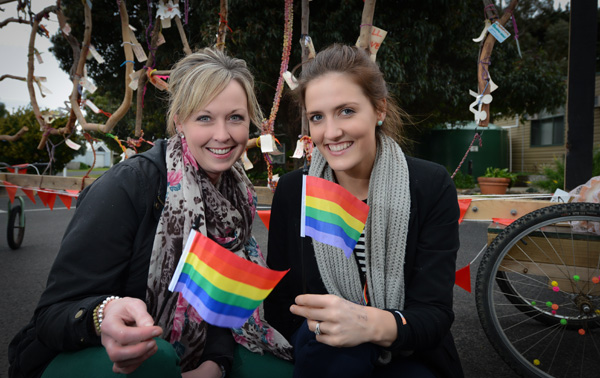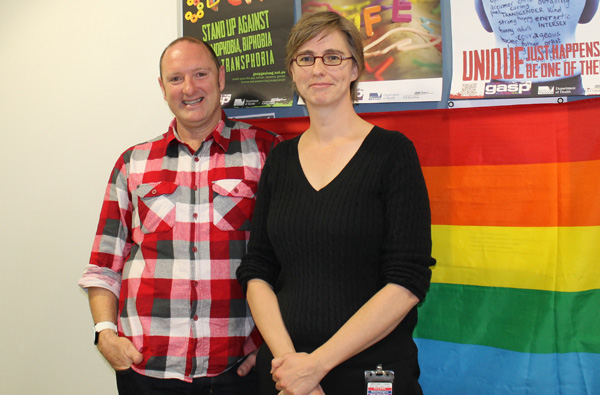Sexuality is a hot social topic, with marriage equality at the top of the list. But what does it mean to a young gay man facing homophobia? And why are Geelong organisations hoping to change organisational culture to be more sexuality-inclusive? CHERIE DONNELLAN finds out.
PICTURES: REG RYAN AND CHERIE DONNELLAN
WHEN I think of the word ‘gay’ I recall alluring images of Mardi Gras – a flurry of colours, smiles and some really quirky costumes. Dance music and laughter is heard in the background of scenes shown yearly on TV.
I think of Geelong’s Hollywood darling Portia de Rossi and her hilarious wife Ellen DeGeneres (pity they didn’t stop by Geelong during their Australian visit).
I think of Twitter’s consistently-trending “#marriageequality” and the flood of support for nations that change laws to allow same-sex couples to marry (good one, New Zealand).
I think of the beautiful rainbow flag that flies high at gay rights support days like IDAHO Day which sends around the message that homophobia is toxic to Australians who identify as gay, lesbian, bisexual, transgender or intersex (GLBTI).
To me – a straight, Gen Y woman – homophobia is old hat. It’s as out-dated a belief as thinking the world is flat.
And yet, it seems even in our hometown, individuals are still facing discrimination – in schools and workplaces – because of their sexuality.
I met with Dylan, a 20-year old Geelong man. He’s gay, and for that, he’s copped a world of abuse.
Two weeks into a new job, Dylan’s manager learned his sexuality. Her treatment of him abruptly changed.
“She would put me down for everything I said or did. She’d belittle me.
“She’d make sly comments about me being gay. It’s like she was trying to joke around. It’s like she was trying to be funny but she was still being offensive at the same time.”
After three months of tolerating his manager’s constant jibes, Dylan “lashed out”.
“I’d had enough.”
“I had asked for an apology [from senior management] and they said that’s not going to happen.
“[My manager] still to this day denies she mistreated me.”
The homophobia Dylan experienced at his job continued months after he quit.
His former manager contacted police, alleging he was “violent…aggressive, that she was scared of me, that I prank call her and send her threats. I didn’t do any of that. I didn’t even have her contact details. It was two months after I’d left.”
Dylan considered applying for an intervention order; after she was made aware of this, she “backed off” from the allegations.
“I don’t understand homophobia,” Dylan says, shaking his head.
More in the current issue of GC Magazine.










